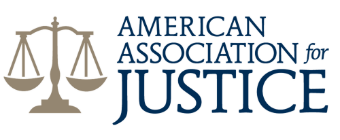Still getting robocalls about a "free cruise"? Don't give them any personal information! It's an illegal scam, but you can fight back. One lawsuit, filed against the Resort Marketing Group, ended in a $12 million settlement. You may be able to file a claim of your own.
- $500 - $1,500 per illegal robocall or robotext
- Hold telemarketers accountable for violating your privacy
- Our attorneys charge nothing until we secure compensation
Ready to get started? Fill out our online questionnaire to see if you qualify. Our experienced robocall attorneys are here to answer your questions. Contact us today for a free legal consultation.
We've helped thousands of people understand the powerful rights granted to them by the Telephone Consumer Protection Act.
"Great Lawyers." Laurence Banville did an excellent job handling my case.
Own a cell phone? If so, it's almost certain that you've been called at least once by someone offering a "free cruise." And it turns out that those calls were also (allegedly) illegal. Under a federal law known as the Telephone Consumer Protection Act, telemarketers aren't allowed to call your cell phone or landline using pre-recorded voice messages without your prior written consent. But that's exactly what Resort Marketing Group was doing, according to a class action lawsuit filed in 2012.
Free Cruise Robocall Settlement: Charvat vs. Carnival
The lawsuit, which soon became the most famous legal action ever to use the Telephone Consumer Protection Act, accused Resort Marketing Group of making illegal telemarketing calls on behalf of Carnival, Norwegian and Royal Caribbean Cruise Lines, according to the New York Daily Lines.

In his legal complaint, Philip Charvat said that he was just one of millions of consumers to receive an unsolicited telemarketing call from Resort Marketing Group. And all of these calls violated the TCPA, Charvat argued, because Resort Marketing Group hadn't obtained the recipient's unambiguous written consent to receive robocalls before dialing the numbers.
Carnival, Norwegian & Royal Caribbean Cruise Lines
The class action, styled as Charvat v. Resort Marketing Group, Inc. et al., also sought to hold Carnival, Norwegian and Royal Caribbean accountable for allowing a third-party company to make illegal phone calls on their behalf.


The Federal Communications Commission, which was granted authority to implement regulations around the TCPA, says that businesses who hire third-party telemarketers can be held vicariously liable for unlawful acts committed by their contractors.
Resort Marketing Group, Cruise Lines Offer $12.5 Million
After being certified as a class action, the case went back and forth for five years. Then, in June 2017, Resort Marketing Group and three cruise companies ended the lawsuit by agreeing to a settlement. Charvat would drop his case, the settlement stipulated, if the defendant companies set up a $12.5 million fund to compensate the millions of people whose privacy rights were allegedly violated by Resort Marketing Group's calls.
None of the defendants admitted liability; Resort Marketing Group, Carnival, Norwegian Cruise Line and Royal Caribbean continue to deny any and all wrongdoing in the case. The next month, a District Judge for the US District Court of Northern Illinois approved the settlement agreement, allowing the compensation process to begin.
Over 2 Million Claims
A third-party settlement administration company, Kurtzman Carson Consultants, handled the actual claims process. And, by October 6, 2017, over two million people had filed claims against the settlement fund, saying they had received illegal calls from Resort Marketing Group, too.
It was a far more dramatic response than anyone had expected. The settlement agreement had set out between $5 and $12 million to compensate victims of the company's alleged telemarketing scheme. Two million people submitted claims. And so, while every claimant eventually received their share, each person only got a few dollars for themselves.
Who Is Philip Charvat?
The only exception to that was Philip Charvat, the man who filed the class action in the first place. As the case's "representative" plaintiff, Charvat was in line to secure an "incentive" award. In many cases, people who initiate a class action can be rewarded for their efforts with more money than the other class members will receive. Charvat petitioned the District Court of Illinois for an incentive award of $50,000.
A "Private Attorney General" For The TCPA
It was not his first such award. Philip Charvat is something of a professional plaintiff. For years, he's been taking telemarketers to court, suing them over various violations of the Telephone Consumer Protection Act.
He sued Echostar Satellite (now Dish Network) for allegedly making 30 illegal telemarketing calls to his residence. He sued National Guardian Life Insurance over similar allegations. ADT Security Systems, AEP Energy, Global Vacation Network and Global Connections and Farmers Insurance have all found themselves on the wrong-end of a TCPA lawsuit filed by Mr. Charvat.
In a 2010 opinion, the Sixth Circuit Court of Appeals referred to him as something of a "private attorney general under the Telephone Consumer Protection Act."
Can I Still Get Money From The Free Cruise Settlement?
No. The deadline for filing a claim against the settlement fund ended on November 3, 2017, but the Telephone Consumer Protection Act isn't just for suing "free cruise" companies.
Why File A Robocall Class Action Lawsuit?
Most of us receive at least one illegal telemarketing call every week. Many of us get far more than that. Each of these violations, the TCPA says, is worth a minimum of $500. Yes, you read that right. The Telephone Consumer Protection Act gives you the right to file a civil lawsuit against any company that violates the law by calling your phone. And, in a trial, each legal violation is equal to at least $500 in compensation. That number triples, to $1,500, for "willful and knowing" violations.
If you're getting telemarketing calls that might be illegal, do something about it. Keep a thorough record of every potentially-illegal call, then contact an experienced attorney to learn more about your legal options.